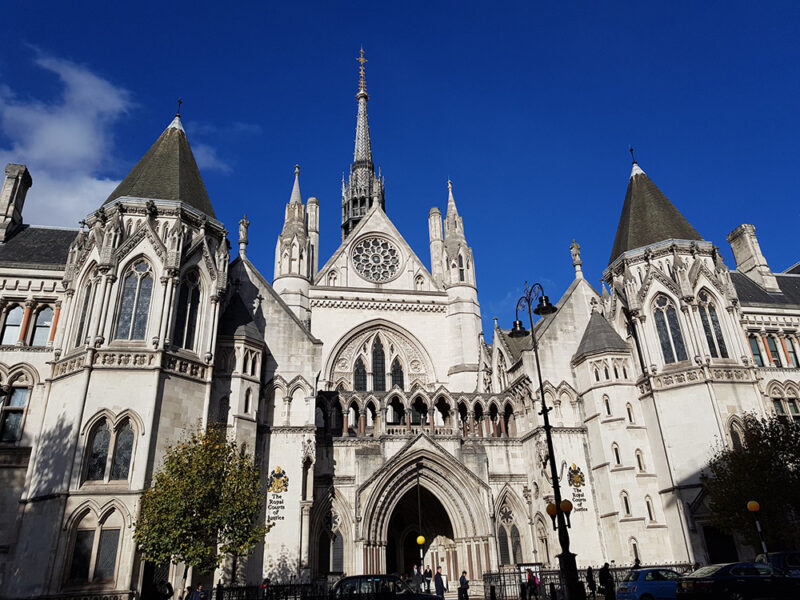
16 Nov Challenge to NHS Trust’s decision not to provide scheduled haemodialysis
Our client’s judicial review was heard today by the High Court. The case concerns those people affected by the NHS charging regime and specifically the correct interpretation of Regulation 3(1A) of the NHS Overseas Visitors Regulations 2015.
Significant amendments were made to the Charging Regulations by the NHS (Charges to Overseas Visitors (Amendment)) Regulations 2017, with the changes coming into force on 23 October 2017. Since the 2017 amendments, it has been mandatory for NHS Trusts and other relevant bodies to require payment in advance of providing services, unless doing so would prevent or delay the provision of immediately necessary or urgent services. As a result, NHS trusts have had to determine whether or not a service was urgent, with this determination having potentially very significant consequences for the patient.
In our client’s case, in determining the question of whether his scheduled dialysis was an urgent service which “should not wait until the recipient can be reasonably expected to leave the United Kingdom”, the NHS trust made a decision to provide our client with treatment which was inferior to normal NHS treatment. His scheduled thrice weekly dialysis (for which he was being charged at 150% of the national NHS tariff) was stopped and, for his dialysis needs, he was advised to attend the Accident and Emergency Department (“A&E”) when he felt unwell.
The Court today considered whether the decision made by the NHS trust was lawful. Our client is also asking the Court to make a declaration as to the correct interpretation or application of Regulation 3(1A) of the NHS Overseas Visitors Regulations 2015.
Doctors of the World, an independent humanitarian organisation working in the UK and abroad that aims to empower excluded people to access healthcare, have been granted permission to intervene by way of evidence and oral submissions, in order to assist the Court.
Our client explains about his case:
“This all started in summer 2019, I was walking my dog, he was just a puppy then. He bit me, it wasn’t intentional and just a small bite. He’d had all his injections from the vet. When I got home I cleaned it up and it healed and I thought nothing more of it.
A few months later I began to feel ill, one day I just passed out. I was rushed to hospital. I was diagnosed with renal failure secondary to sepsis. I was moved to intensive care at the hospital.
On my discharge, I was referred to a dialysis unit. I was given regular dialysis treatment, 3 times a week.
Everything was new to me; I had never been ill like this before and having to have this treatment took some adjusting to. I was also hopeful for my health and glad that I was receiving regular treatment to allow me to live as normal a life as possible.
At the end of 2019 I was then informed by my nephrologist doctor that, because of my immigration status, I could not continue to have regular dialysis treatment. I was told instead to go to A&E if I felt ill.
I almost immediately started to feel the physical effects of not having dialysis and of not having the toxins removed from my body. I was in so much pain, I was short of breath and vomiting. I hardly slept at night. Although I had no income or financial support I needed to find my way to A&E. Once at A&E I would then be waiting for hours before I was seen.
Since starting legal action I have been put back on regular dialysis and I am grateful for this.
This was the worst experience of my life, it left me feeling depressed and suicidal. I lost my dignity and felt worthless. I felt let down by the UK after living here for 35 years and having contributed to the UK and believing the UK was my home.
I am bringing this case to benefit both me and other people, to hopefully make a change so that others don’t have to go through the hell that I went through.
I want the Court to make a ruling that what the hospital did, in deciding to give me substandard treatment because of my immigration status, was wrong. I want the Court to make it clear what the regulations allow hospitals to do as I understand that many other people have been treated like me and some people have died as a result of the substandard treatment they have received.”
DPG act for the Claimant, the Claimant’s barrister is Simon Cox of Doughty Street Chambers.
Doctors of the World are represented by Bhatt Murphy solicitors, their barristers are Jamie Burton QC of Doughty Street Chambers and Admas Habteslasie of Landmark Chambers.
Contact details for follow-up queries: Bristol@dpglaw.co.uk.
